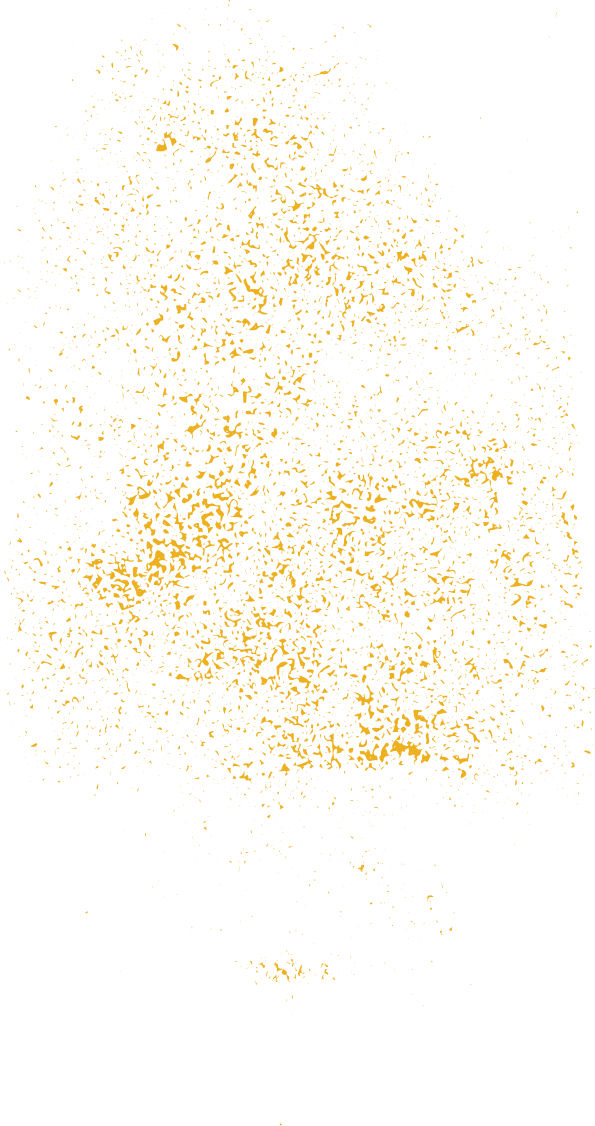Nutrition Sciences
Food and nutrition are the foundations of good health. In the Manchester University nutrition sciences major, students are prepared to develop lifelong personal health practices and to advise others on what to eat to lead a healthy lifestyle or achieve a specific health-related goal.

Manchester Nutrition Sciences Majors: Prepare to Lead the Charge Against Complex Diseases
Many complex diseases, such as cancer, diabetes and heart disease, could be better managed with the help of a nutritionist as part of a health care team. In fact, the U.S. Centers for Disease Control and Prevention indicate that nutritionists and dietitians will be in higher demand because of the increasing prevalence of complex diseases in an aging population. Manchester nutrition majors develop a comprehensive understanding of the relationship between nutrition and medicine as they relate to human health.
Program Information:
Major | BS
- 53 Credit Hours
Minor Available
Location
- North Manchester

Molly Moxley, Nutrition Sciences
Why Choose MU for Nutrition Science?

Choose your nutrition sciences track
We offer four Nutrition Sciences Program opportunities:
- Major in Nutrition Sciences
- Nutrition Sciences Major with RDN concentration
- Minor in Nutrition Sciences
- Master of Science in Nutrition and Nutrigenomics
hands-on nutrition sciences learning
Learn from industry experts
What You Can Do with Your Nutrition Science Degree
Clinical dietitian
Creates nutrition plans for patients
Nutrition manager
Oversees dietary programs and staff
Recipe developer
Creates and tests new food recipes
Food policy professional
Shapes food laws and regulations

Average Starting Salary for Nutrition Science Degree Holders
The average salary for dietitians and nutritionists was $73,850 in 2024, according to the Bureau of Labor Statistics, with 81,200 jobs in 2023. Jobs for dietitians and nutritionists are expected to grow by 7 percent—higher than average for all professions through 2033.

About the Nutrition Sciences Program
Classes
Curriculum Progression: Nutrition Sciences Major | Traditional Route
Year 1 | 13 Credits
BIO 202 | 3 credit hours
EXSC 107 Medical Terminology | 3 credit hours
NUTR 103 Global Food & Nutrition | 3 credit hours
NUTR 220/L Food Science w/Lab | 4 credit hours
Year 2 | 18 Credits
BIOL 204 Fundamentals of Human Physiology w/Lab | 3 credit hours
CHEM 105/R Introduction to Inorganic Chemistry w/Lab | 5 credit hours
CHEM 106/L Introduction to Organic Chemistry w/Lab | 4 credit hours
NUTR 102 Nutrition Communication | 3 credit hours
NUTR 210 Introduction to Human Nutrition | 3 credit hours
Year 3 | 12 Credits
MATH 115 Elementary Probability and Statistics (LA-FQR) | 3 credit hours
NUTR 230 | 3 credit hours
NUTR 340 Macronutrients & Metabolism | 3 credit hours
NUTR 320 Meal Prep & Diet Planning | 3 credit hours
Year 4 | 10 Credits
EXSC 476 Internship | 3 credit hours
NUTR 211 Human Life Cycle Nutrition | 3 credit hours
NUTR 330 Micronutrients & Metabolism | 3 credit hours
NUTR 101 Nutrition Screening Lab | 1 credit hour
Total Credit Hours for Nutrition Science: Traditional Route – 53 Credit Hours
Curriculum Progression: Nutrition Sciences Major | RDN Route
Year 1 | 14 Credits
BIO 202/L | 4 credit hours
EXSC 107 Medical Terminology | 3 credit hours
NUTR 103 Global Food & Nutrition | 3 credit hours
NUTR 220/L Food Science w/Lab | 4 credit hours
Year 2 | 20 Credits
NUTR 102 Nutrition Communication | 3 credit hours
BIOL 204/L Fundamentals of Human Physiology w/Lab | 4 credit hours
CHEM 111/R General Chemistry I w/Lab | 5 credit hours
CHEM 113/R General Chemistry II w/Lab | 5 credit hours
MATH 115 Elementary Probability and Statistics | 3 credit hours
Summer 2nd or 3rd Year | 3 Credits
EXSC 476 Internship | 3 credit hours
Year 3 | 23 Credits
BIOL 219/L Microbiology for Healthcare w/Lab | 4 credit hours
NUTR 210 Introduction to Human Nutrition | 3 credit hours
CHEM 311/R Organic Chemistry I w/Lab | 5 credit hours
CHEM 312/R Organic Chemistry II w/Lab | 5 credit hours
NUTR 340 Macronutrients and Metabolism | 3 credit hours
NUTR 320 Meal Prep and Diet Planning | 3 credit hours
Year 4 | 15 Credits
BIOL 313/L Microbiology w/Lab | 4 credit hours
CHEM 405/L Biochemistry w/Lab | 4 credit hours
NUTR 211 Human Life Cycle Nutrition | 3 credit hours
NUTR 330 Micronutrients and Metabolism | 3 credit hours
NUTL 101 Nutrition Screen Lab | 1 credit hour
Total Credit Hours for Nutrition Science: RDN Route – 71 Credit Hours
Meet the Faculty
You Might Also Be Interested In These Programs

FAQs About Manchester University’s Nutrition Sciences Degree
What career paths are available with a Bachelor of Science in Nutrition Sciences degree?
The preparation you receive in our nutrition sciences major will make you well-suited for careers such as:
- Corporate wellness
- Health/fitness management (might require fitness certification)
- Health/medical/nutrition equipment sales
- Food and nutrition communication
- Humanitarian nutrition support (food banks, global food support: Red Cross, UNICEF, World Food Program)
- Health department nutrition educator
- Eligible for Wellcoaches® and wellness coach certification
- Food industry (food communicator/writer/marketer)
With RDN certification, you’ll be prepared to work as a:
- Clinical dietitian
- Nutrition manager (school food system management, hospital food management, public health nutritionist, corporate sites)
- Food policy professional at the USDA
- Private dietetics practitioner/nutrition entrepreneur
- Recipe developer
- Global nutrition policy advocate
Students who include the RDN concentration will also be prepared to pursue advanced academic studies in other disciplines, such as:
- Food chemistry
- Nutritional biochemist
- Nutrigenomics
- Nutraceutical sales
- Science liaison officer
- Academia and health education
A major or minor in nutrition sciences also prepares students pursuing other health careers to focus on preventative health measures and whole patient care (meets many requirements for pre-med, pre-PT, nursing).
Which track in nutrition sciences is right for you?
Choose a traditional nutrition major, and you’ll study food science, organic chemistry, meal prep, diet planning, micronutrients and metabolism. You will be prepared for careers in lifestyle and a living nutrition setting.
The nutrition sciences major with Registered Dietitian Nutritionist (RDN) concentration is designed to prepare students for further study, including fulfilling requirements for acceptance into RDN-eligible master’s degree programs.* Students who ultimately plan to take the Commission on Dietetic Registration (CDR) national credentialing examination for certification as a Registered Dietitian Nutritionist (RDN) should follow this track. Read more about master’s requirements for RDN credentialing on the CDR website.
*Graduate degree programs vary between universities and may require additional courses. A bachelor’s degree in nutrition sciences from Manchester fulfills all the academic requirements for application to Manchester’s Master of Science in Nutrition and Nutrigenomics Program; however, admission is not guaranteed.
Nutrition Sciences Learning Outcomes
Program Learning Outcomes
1. Students will be able to identify, interpret and apply nutrition principles and concepts to evaluate and improve nutritional health for individuals and community.
Student Learning Outcomes:
- Student will determine and translate nutrient needs into menus for individuals and groups across the lifespan, cultures, income levels, and religions.
- Students will identify and advocate public policy related to nutrition programs and/or health care.
2. Students will be able to demonstrate a variety of communication strategies in nutrition and food education emphasizing all mode of communication.
Student Learning Outcomes:
- Students will identify and deliver written and verbal nutritional communication to individuals and groups.
- Students will apply interviewing techniques for diet information for individual clients.
3. Students will be able to apply management principles to evaluate human, physical, and fiscal resources in organizations.
Student Learning Outcomes:
- Students will apply principles and theories of management to the administration of human, physical and financial resource in food and nutrition services
4. Students will be able to integrate knowledge and skills in food and nutrition with professional issues affecting the nutrition and/or dietetics fields.
Student Learning Outcomes:
- Students will utilize outcomes-based research and statistics to interpret nutrition conditions and/or current issues.
Non-Discrimination in the Admission Process
Manchester University is committed to non-discrimination in campus life. The University does not discriminate on the basis of national origin, ancestry, race, color, age, sex, gender identity or expression, sexual orientation, familial status, religion, disability or veteran status in admissions or any area of campus life, including its educational programs, scholarships and loan awards, residence life programs, athletic programs, extracurricular programs, promotion and tenure policies and practice, and alumni affairs.
Manchester University is committed to carry out the provisions of Section 504 of the Rehabilitation Act of 1973 and the Americans With Disabilities Act, which provide for accessibility of University programs to the physically disabled.






